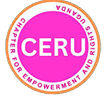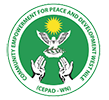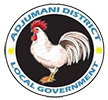Gender Justice & Feminist Leadership Projects
Gender Mainstreaming Project
Another critical pathway through which Humanity Touch addresses GBV. By working with district officials and participating in planning and budgeting meetings, the organization ensures that gender equity and GBV prevention are embedded in local development agendas. These efforts influence policy and resource allocation, contributing to systemic change that protects and empowers women and girls.
Feminist Leadership Academy Project
This project further strengthens the program’s GBV prevention strategy by empowering young women, particularly secondary school students, to take on leadership roles. By fostering self-worth, public speaking, and decision-making skills, the academy helps girls become visible, vocal agents of change, challenging the silence and stigma that often surround GBV. Motivational engagements in schools serve as a powerful tool to inspire girls to lead, while also shifting community perceptions about the value of female leadership.
Safe Spaces Project
We provide trauma-informed environments, both physical and digital, where women and girls can heal, learn, and lead. These spaces are designed not only to support survivors of GBV but also to equip adolescent girls with the confidence and civic awareness needed to navigate and transform their communities. The inclusion of an online platform ensures that access to support and education is extended beyond physical boundaries, allowing women and girls to ask questions, receive guidance, and connect with mentors in a secure and affirming environment.
Gender Justice & Feminist Leadership Program Articles
Running for the Dignity of the Girl Child: A Collective Stride Toward Justice and Inclusion
In the vibrant district of Adjumani, a powerful event unfolded that brought together communities, institutions, and changemakers in a shared commitment to uplift and protect the girl child. Running for the Dignity of the Girl Child was not merely a physical race—it was a symbolic and strategic movement that united vulnerable populations, school-aged girls, government officials, and nonprofit organizations in a collective stride toward justice, visibility, and empowerment. The event served as a public affirmation that every girl deserves to live free from violence, discrimination, and silence—and that her dignity is not negotiable. Among the key participants was Humanity Touch, whose presence and programming added depth and resonance to the event’s purpose. With a vision of building a just, peaceful, and inclusive society where women, girls, and marginalized communities thrive, Humanity Touch used the platform to amplify its mission: advancing gender justice, safeguarding rights, and promoting eco-inclusive livelihoods. The organization engaged attendees through interactive sessions, storytelling, and community dialogue, highlighting its work in displacement-affected communities where girls face heightened risks of gender-based violence, early marriage, and educational exclusion. Humanity Touch’s team showcased their integrated approach—combining trauma-informed support, leadership development, and rights-based advocacy—to ensure that girls are not only protected but empowered to lead transformative change. The run itself was a vibrant display of solidarity. Vulnerable persons, including survivors of GBV, adolescent girls, and youth from host and refugee communities, participated alongside district officials, school representatives, and nonprofit leaders. Their presence underscored the urgency of the cause and the power of inclusive mobilization. Government officials from the Ministry of Gender, Labour and Social Development, as well as local council leaders, reaffirmed their commitment to advancing policies that protect girls and promote gender equality. Nonprofit institutions working in education, health, and child protection joined forces to share resources, build partnerships, and align efforts toward a common goal. Throughout the day, the event featured speeches, performances, and exhibitions that celebrated resilience and called for action. Girls shared personal stories of overcoming adversity through access to safe spaces and mentorship, many of them beneficiaries of Humanity Touch’s Feminist Leadership Academy and Safe Spaces Project. These testimonies served as powerful reminders that when girls are given the tools to lead, they become catalysts for change in their families, schools, and communities. In addition to awareness-raising, the event also served as a fundraising and advocacy platform. Humanity Touch launched a call to action for increased investment in community-based protection services, vocational training for girls, and digital access to rights education. The organization emphasized the need for more trauma-informed centers, solar-powered learning hubs, and inclusive governance structures that reflect the voices of girls and women. Stakeholders were invited to commit resources, share expertise, and co-create solutions that address the root causes of gender inequality and violence. Running for the Dignity of the Girl Child was more than a moment—it was a movement. It reaffirmed that dignity is not a privilege but a right, and that every step taken in solidarity brings us closer to a society where girls are safe, heard, and free to shape their futures. Humanity Touch continues to lead this charge, ensuring that the momentum built in Adjumani translates into lasting impact across Uganda and beyond.
Cultivating Justice, Dignity, and Climate Resilience in Adjumani
In the quiet resilience of Odrueyi village, Adjumani District, a powerful conversation unfolded on 10th July 2025, one that would sow the seeds of a transformative movement. Convened by Humanity Touch, the community dialogue brought together a diverse group of voices: GBV survivors, formerly incarcerated women, youth leaders, local elders, community health workers, and representatives from women’s savings groups and refugee host communities. The meeting was called in response to growing concerns about the psychosocial and economic isolation faced by women and youth affected by gender-based violence and displacement. Facilitated by Humanity Touch’s field team, the dialogue created space for participants to share lived experiences, reflect on structural barriers, and envision practical solutions rooted in dignity and healing. What emerged was a collective proposal, an initiative that would blend trauma recovery with sustainable livelihoods, anchored in feminist values and ecological stewardship. The participants fronted several ideas to the tabled problem. In the end, they all unanimously agreed on the need to establish trauma-informed community gardens that would serve as safe spaces for healing, learning, and economic empowerment. They proposed that each farming activity: planting, weeding, harvesting, and post-harvest handling, be paired with motivational or educational talks to foster reflection and build resilience. They also emphasized the importance of training young feminist leaders in food sovereignty, advocacy, and community mobilization, ensuring that the initiative would grow future champions of justice and sustainability. A key decision was to locate the first gardens across three sub-counties neighbouring the host sub county, with each site serving as a hub for training, market access, and psychosocial support. If funds allowed, then the project would spread to other sub counties as well, basing on the lessons learnt in the first phase. More, participants recommended that the project include storytelling and documentation components, so that their journeys could inspire others and challenge stigma. They also called for the development of a simplified toolkit to guide replication in other communities. All these were surely pregnant ideas. The way forward, as agreed in the meeting, was clear: Humanity Touch would develop a formal project concept, now titled “Healing Circles” and seek global funding assistance for this noble cause. Can you fund us? If yes, contact us on info@thehumanitytouch.org.
Humanity Touch Advances Gender Justice Through Community-Based GBV Prevention Training
In a powerful stride toward building safer, more inclusive communities, Humanity Touch—working in collaboration with Chapter for Empowerment and Rights Uganda (CERU) and in partnership with GIZ Uganda—successfully trained 55 Community-Based Trainers and Field Extension Consultants under the RISE Project. The training, held across Arua, Moyo, and Adjumani districts, brought together 26 women and 29 men committed to transforming their communities through gender-based violence (GBV) prevention, survivor-centered response, and gender transformative leadership. This initiative was more than a capacity-building exercise—it was a strategic investment in grassroots leadership and community resilience. Participants were equipped with practical knowledge and tools to address GBV through a rights-based lens, gaining deeper understanding of power dynamics, intersectionality, and the social norms that perpetuate violence and exclusion. The training emphasized survivor-centered services, legal frameworks, and the importance of fostering positive change within households and communities. Through interactive sessions, role plays, and facilitated dialogues, participants developed critical skills in communication, self-awareness, and leadership—laying the groundwork for stronger referral pathways and community protection mechanisms. Immediate outcomes were both personal and structural. Many participants reported mindset shifts, recognizing GBV not just as a social issue but as a criminal offense under Ugandan law. Others committed to initiating couple dialogues, peer education, and community sensitization campaigns. The training also catalyzed the development of localized GBV referral networks, ensuring that survivors can access timely and dignified support. CERU and GIZ Uganda will continue to provide follow-up and technical assistance to reinforce learning and ensure sustainable impact. This activity directly aligns with Humanity Touch’s strategic focus on Gender Justice & Feminist Leadership. By empowering community-based actors with the knowledge, tools, and confidence to challenge harmful norms and promote survivor-centered care, the organization is advancing its mission to safeguard rights, foster peaceful coexistence, and build inclusive systems of protection. The training not only strengthens local capacity—it reaffirms Humanity Touch’s vision of a just, peaceful, and inclusive society where women, girls, and marginalized communities thrive with dignity and equality. As Humanity Touch continues to scale its work across Uganda, this training marks a significant milestone in the journey toward transformative change. It demonstrates that when communities are equipped, informed, and united, they become powerful agents in the fight against GBV—and in the creation of a future where dignity is not just protected, but actively upheld.
Our Partners
We are proud to collaborate with a diverse network of partners who share our commitment to gender justice, inclusive development, and community resilience. Their expertise, resources, and solidarity strengthen our impact and help us drive transformative change across Uganda and beyond.



